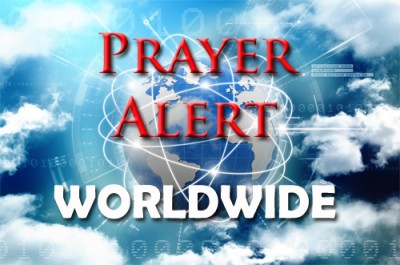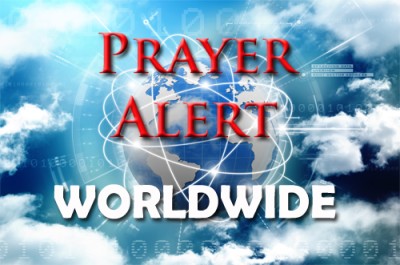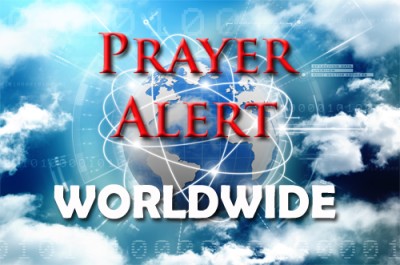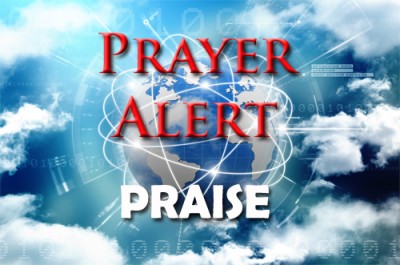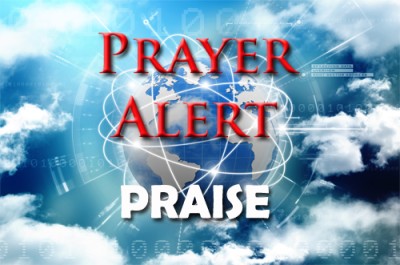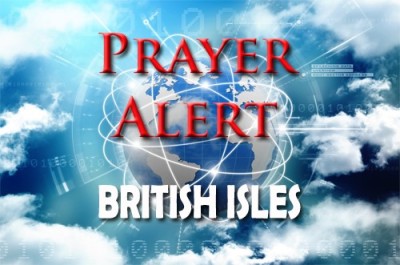Nigeria: fuel shortages causing major problems
02 May 2024Nigeria is grappling with a severe fuel shortage, exacerbating the hardships faced by its citizens (especially those reliant on public transport). Long queues for fuel have emerged in major cities, and prices have surged by over 15%. Authorities attribute the shortage to logistical challenges disrupting supply chains. Despite being a top crude oil producer in Africa, Nigeria frequently experiences petrol shortages due to strikes and supply disruptions. The state oil firm has accused fuel companies of exploiting the situation for profit. While Nigeria recently opened Africa's largest refinery in Lagos, it currently only produces diesel and aviation fuel. With the inflation rate over 30%, the government has just announced a 35% pay increase for civil servants, but the monthly minimum salary rate is still unchanged. See
Heavy flooding in Kenya, after weeks of intense rain and flash floods, has left at least 103 people missing, with 71 confirmed dead. Most of the missing are from Mai Mahiu, near Nairobi, where on 29 April flooding near a railway bridge, caused by a clogged tunnel, caused at least 45 deaths. The country’s president William Ruto has ordered the military to help search and rescue efforts. Nearly 191,000 Kenyans have been displaced by the floods, which are said to have been exacerbated by the effects of El Niño. The government has established 52 displacement camps to provide temporary shelter, but with more rain forecast the situation may worsen. The floods have affected other countries: a week ago, Tanzania’s president said that 155 people had been killed and 200,000 displaced. See
Afghanistan: gun attack on mosque kills six
02 May 2024On 29 April a gunman attacked a mosque in western Afghanistan, killing six people. The mosque, reportedly belonging to Afghanistan's minority Shia community, was targeted during prayer. Among the victims was a prayer leader. IS has claimed responsibility for the attack, consistent with their history of targeting Shia communities. Despite the Taliban government's pledge to protect religious and ethnic minorities since assuming power in August 2021, little has been done. The deadliest recent attack linked to IS occurred in 2022 in Kabul, resulting in 53 deaths, primarily girls and young women. A UN report in January noted a decrease in IS attacks due to Taliban counter-terrorism efforts, but said that the group still had ‘the ability to project a threat into the region and beyond’ - as shown by the deadly attack in a Moscow nightclub in March, for which IS has claimed responsibility.
Ecuador: president declares state of emergency
02 May 2024On 30 April Ecuadorean president Daniel Noboa decreed a state of emergency in five coastal provinces, lasting sixty days, because of ‘internal armed conflict’. The measure marks the second such declaration by Noboa, who took office in November with promises to turn around a deteriorating security situation which has led to a spike in violent deaths and other crimes. The police and armed forces will be deployed in the provinces for ‘tactical combat operations’ against organised armed groups’. The government blames the violence (including the dramatic invasion of a television station and mass hostage-taking of prison guards in January) on drug-trafficking gangs.
Asbury: ‘Outpouring really hasn’t stopped’
25 Apr 2024On 8 February 2023, what began as an ordinary chapel service at Asbury University evolved into a 16-day 'outpouring' led by students, attracting individuals from numerous universities worldwide. Dr Sarah Thomas Baldwin, a professor whose book on this outpouring will soon be published, has described the lasting influence of the revival. Despite the initial exhaustion following the event, the campus experienced a revival in spiritual engagement. Students returned with renewed energy for worship and prayer, significantly raising the spiritual temperature. She recounted the early days when students gathered spontaneously post-chapel, leading to joy, repentance, and deep spiritual connection. The outpouring not only captured media attention but also solidified a strong community among campus leaders. Today, the spiritual lessons from the event continue to inspire and draw individuals seeking depth and hope in challenging times, reinforcing their commitment to deepening their faith in Jesus.
Duane Chapman’s testimony
25 Apr 2024Duane Chapman, better known as Dog the Bounty Hunter, has extensively experienced the dark side of humanity through his career. He firmly believes in spiritual warfare and the redemptive power of Christ, which he discusses in his latest book co-written with his wife Francie, 'Nine Lives and Counting’. The book explores Chapman’s transformation from a troubled past involving crime and incarceration in the 1970s to a life driven by faith and outreach. His career has evolved from capturing fugitives to guiding them towards spiritual redemption, often sharing impactful conversations about faith. His Christian faith journey, intensified by personal losses, including the deaths of his daughter and his wife Beth, has led him to a renewed mission of spreading hope and engaging in ministry work. Now remarried and leading the Light Up the Darkness ministry, Chapman points to the transformative power of Jesus and the possibility of overcoming great struggles through divine help.
The Archbishops of Canterbury and York, along with other church leaders, have voiced strong concerns regarding the recently passed Safety of Rwanda Bill. This legislation, aimed at deporting some asylum seekers to Rwanda, has met with considerable opposition. The church leaders criticised the bill for unfairly maligning migrants fleeing war, persecution, and violence for political purposes. In a joint statement, they highlighted the potential precedent this bill sets for the treatment of vulnerable individuals, including victims of modern slavery. They expressed disappointment in the rising hostility towards refugees and asylum seekers, whom they describe as being used as 'political footballs.' The UN has also urged the UK to reconsider this bill, especially after the tragic deaths on 23 April of five people attempting to cross the English Channel. Rishi Sunak defended the bill, citing the need for a deterrent against criminal exploitation of vulnerable migrants. See
Rishi Sunak has committed to increasing UK military spending to 2.5% of GDP by 2030, to address threats from what he calls 'an axis of authoritarian states’. During a visit to Poland, he highlighted the challenging international environment reminiscent of the Cold War era, necessitating this boost in the defence budget. Sunak said that this investment, which will bolster the military industry, does not signal an imminent war but prepares the nation for potential threats. The increased funding will support existing MoD projects, including new frigates, a fighter jet, and nuclear weapons system modernisation, despite the financial strains these expensive programmes have placed on current resources. The commitment aims to set a new benchmark for NATO members, surpassing the decade-old target of 2% GDP for defence spending. This spending strategy is framed as a priority re-allocation within the government budget.
